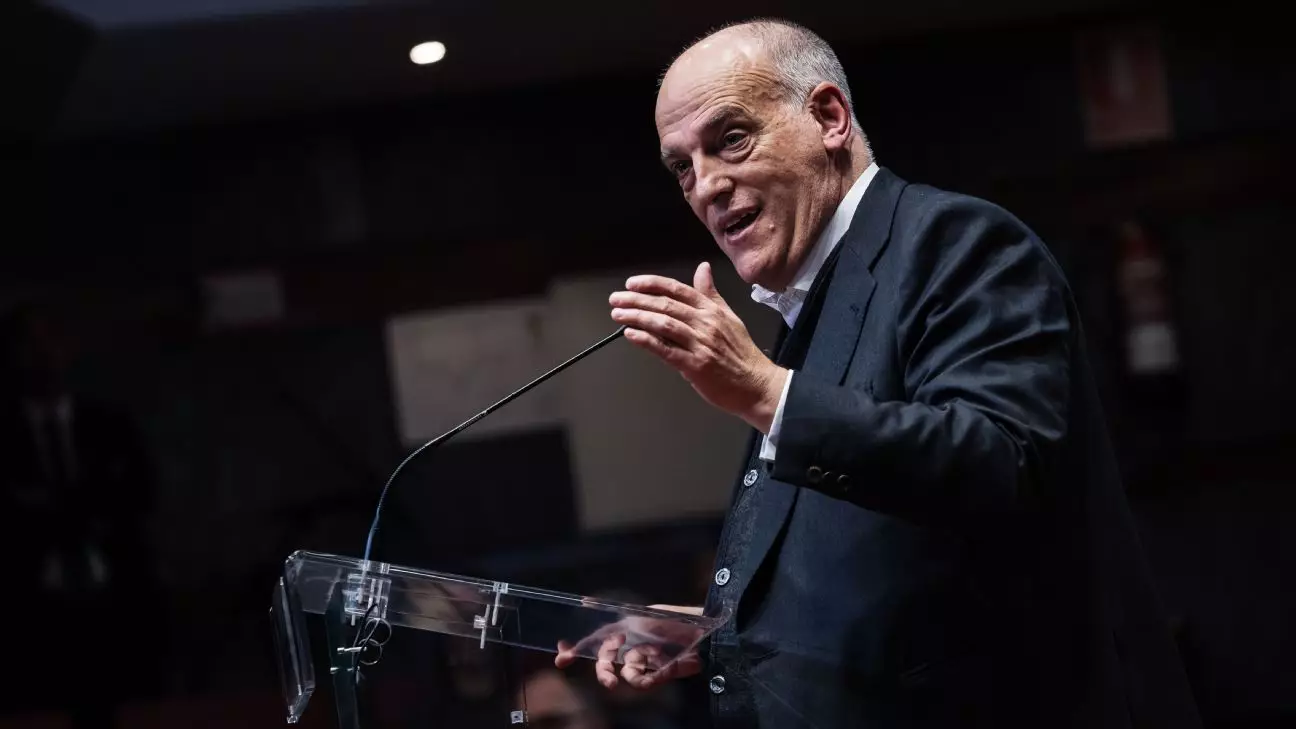The announcement of the 2025 FIFA Club World Cup, expected to be a significant event in global football, has stirred controversy, particularly surrounding its organization and potential impact on players and leagues. Javier Tebas, the president of LaLiga, has voiced strong opposition to FIFA’s plans, urging FIFA president Gianni Infantino to reconsider the tournament altogether. During the Forum of the European Union of Clubs in Brussels, Tebas argued that the overwhelming sentiment from both the leagues and the FIFPRO Players’ Union is against the Club World Cup. His call for cancellation stems from multiple logistical and financial concerns that could have implications far beyond the tournament itself.
Tebas raised critical points about the financial aspects of the Club World Cup, claiming that FIFA has not yet secured the necessary audiovisual rights or sponsorships to support the tournament’s ambitious budget. He highlighted the lack of concrete financial backing as a significant red flag, suggesting that FIFA may end up using its funds to cover any fiscal shortfalls. This raises questions about financial management within FIFA and whether the organization’s priorities align with the interests of its member federations. Tebas suggested that utilizing FIFA funds to finance the Club World Cup could detract from other essential programs and initiatives that FIFA claims to support, hinting at a larger systemic issue within the organization regarding resource allocation.
One of the most pressing concerns regarding the 2025 Club World Cup is its impact on an already congested football calendar. With the expansion of UEFA club competitions coinciding with the introduction of this new tournament, there are fears that players will face an unsustainable workload. Rodri, a midfielder for Manchester City, has publicly expressed concerns about overexertion among players, stating that many are reaching a breaking point. With a lengthy previous season that pushed players through numerous matches, the anxiety surrounding their welfare is palpable.
Leagues and players are not just passively accepting these changes; the global players’ union, FIFPRO, alongside numerous domestic leagues, has formally filed a complaint with the European Commission. Their argument highlights a perceived conflict of interest within FIFA, acting both as the tournament organizer and a regulatory body. This raises essential ethical questions about accountability and governance in football, as players and leagues seek a more balanced approach from the governing body.
As FIFA prepares for the 2025 Club World Cup, the challenges ahead are multifaceted. Issues of financial stability, player welfare, and organizational credibility are at the forefront of the debate. With mounting opposition from high-profile figures like Tebas and pressure from players, the success of the tournament may hinge not only on logistics and marketing but also on how FIFA engages with its stakeholders moving forward. For the tournament to truly be a celebration of world football, it must address and investigate these valid concerns, paving the way for a more equitable and sustainable future in the sport. The coming years will prove crucial as both FIFA and the broader football community navigate these complex challenges.
